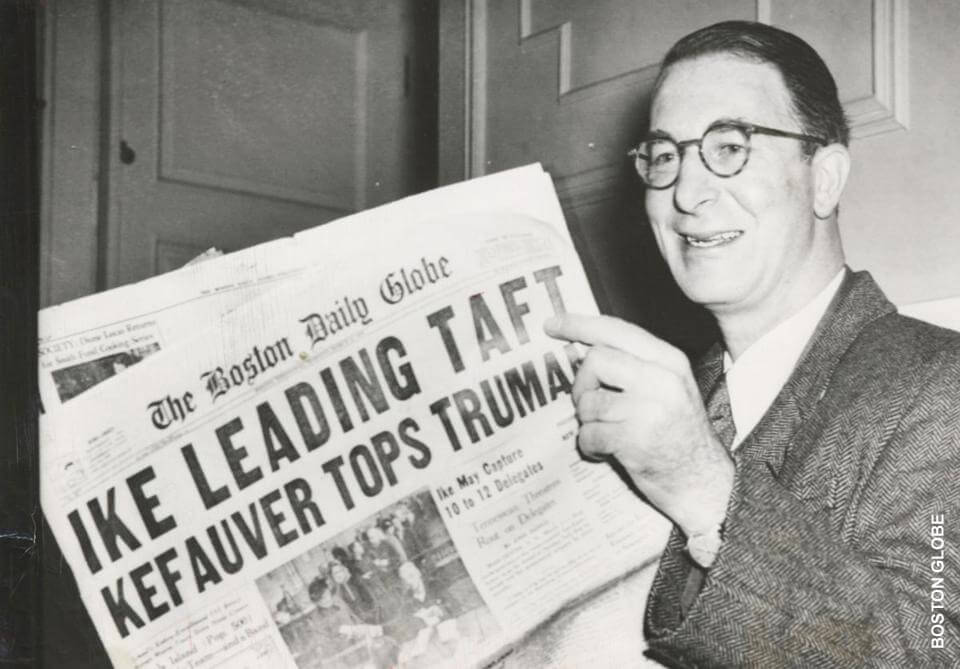TRU HISTORY | February 9, 2016

Kefauver Defeats Truman
Every four years, presidential hopefuls and political pollsters travel to New Hampshire for the first-in-the-nation presidential primary. In January 1952, however, Harry Truman was not campaigning for another term as president. So how did he come in second in New Hampshire’s Democratic primary?
John L. Sullivan, former Secretary of the Navy and one of Truman’s advisors, shared part of the story during his oral history interview:
“I thought that it was very important that he remain President for another four years, and I saw no other Democrat could be elected at that time. He never told me that he was going to become a candidate, and he never told me he was not going to become a candidate. I felt it was very important in the New Hampshire primary, the first to be held in the country, that his name be on the ballot.”
Despite Sullivan’s impassioned plea, Truman remained “very non-committal.”
Although President Truman had not decided whether to run for president in 1952, his name was added to the list of Democratic candidates on January 30, 1952. No one consulted Truman before adding his name. In fact, he discovered his name was added to the primary ballot when he read about it in the newspaper. Asked about the addition of his name to the ballot by a reporter, Truman responded, “It will be taken off.”
But President Truman did not have his name removed from the New Hampshire ballots. On February 5, 1952, at the urging of Democratic National Chairman, Frank E. McKinney, President Truman decided to keep his name on the ballot. He wrote the following to the New Hampshire Secretary of State:
Dear Mr. Fuller:
Thank you very much for your telegram concerning the Presidential Preference Primary in New Hampshire. I am most grateful to those who signed the petitions in my behalf.… I had thought it would be better for my name not to appear on any ballot at this time as a candidate for President until I am ready to make an announcement as to whether I shall seek reelection. But the Chairman of the Democratic National Committee and many good Democrats in New Hampshire are of the opinion that my name should be left on the ballot. At their suggestion, therefore, I shall not ask you to take my name off the list.
Sincerely yours,
Harry S. Truman
On March 11, 1952, 36,500 New Hampshire Democrats voted in the presidential primary; 55% of them cast votes for Senator Estes Kefauver of Tennessee. Only 44.2% voted for the sitting commander-in-chief.
Eighteen days later, at the Jefferson-Jackson Day Dinner, President Truman announced his decision not to run for re-election.
“I shall not be a candidate for reelection. I have served my country long, and I think efficiently and honestly. I shall not accept a renomination. I do not feel that it is my duty to spend another 4 years in the White House.”
Although he was out of the race, President Truman campaigned for Adlai Stevenson, the Democratic Party nominee.
Sullivan’s prediction that his party would lose without Truman turned out to be true; the Democrats would lose that 1952 presidential election to the Republican candidate, General Dwight D. Eisenhower.
Today’s post was written by Mary A. McMurray, director of The White House Decision Center at the Harry S. Truman Library and Museum.


